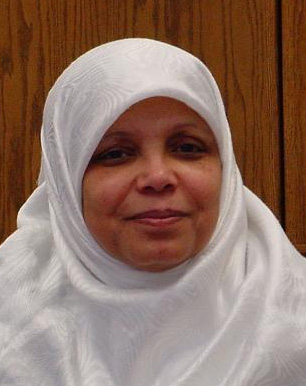AISHA SALIH
 |
BIOGRAPHICAL INFORMATION |
SAMPLES FROM THE INTERVIEW ON THE WORK OF THE CIVIL RIGHTS COMMISSION: " The Human Rights Commission of Moorhead--they look at the problems faced by different—not necessarily my people or anyone who has some hardship or some difficulty, because they put their problem in front of them; we discuss the problem, we reach out—where’s the source of problem?—and try to figure out why the problem happened and what is the solution, and try to direct people to go through the right channels rather than take action without studying the problem. " ON THE EVOLUTION OF SERVICES FOR IMMIGRANTS TO FARGO-MOORHEAD: "...a lot of big changes happened in the last eight years after the first Somalian group came. That was eight years ago--was a big rush of Somalian groups. They arrived to the area here. Even me, I don’t…I don’t speak Somalian but I was helping. If they go to the doctor, I go. If they have someone who speaks Arabic, but no English. I translate from English to Arabic and he translates from Arabic to the Somalian language for the patient, so it would just go through three channels like that. After that, a lot of changes: now we have interpreters for Somalian, for Bosnian, for Arabic, for Sudanese language, so we have a lot, a lot of people came from outside the area." |